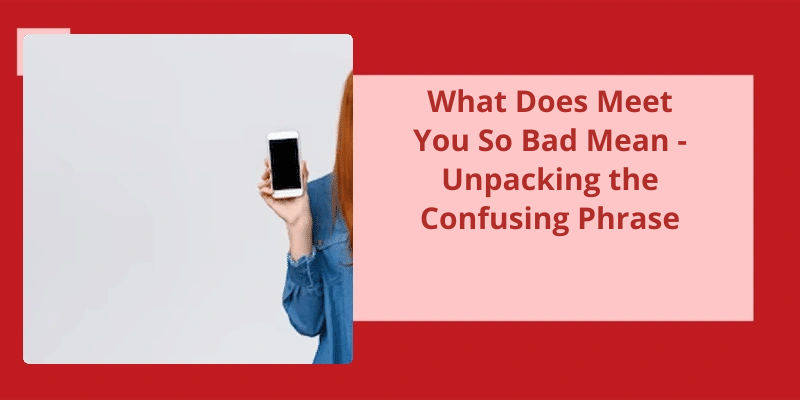In the realm of human expression, linguistic nuances frequently manifest themselves through the careful interplay of words, imbuing meaning with subtlety and nuance. The phrase "I haven't even" elegantly encapsulates a particular manner of comparison, wherein the speaker juxtaposes an existing quantity, be it a measure of progress or any other tangible or intangible dimension, against an idealized standard. By utilizing the word "even" in conjunction with a negative verb, a unique framework emerges, inviting the listener to consider the deficit between the observed and the desired. This linguistic construct serves as a conduit for conveying a sense of disappointment, frustration, or surprise, insinuating that the current state falls short of what’s anticipated or hoped for. Thus, the phrase "I haven't even" becomes a linguistic shorthand, enabling individuals to express discrepancy and evaluate their progress or attainment against an underlying benchmark.
What Is the Difference Between Have and Haven T?
The word “have” is a versatile verb that can be used to indicate possession, experience, or action in the present tense. On the other hand, “havent” is the contraction of “have not” and is used to express the absence of an action or an experience.
One key difference between “have” and “havent” lies in their tense.
For instance, if someone says “I’ve a car,” it means that they currently possess a car. However, if they say “I havent driven a car,” it implies that they’ve never had the experience of driving a car. The negation in this case is indicated by the contraction “havent”.
For example, in the sentence “I’ve a book,” the book is the object of the verb “have”.
It doesn’t require an object to complete it’s meaning. For instance, in the sentence “I havent seen him,” the verb “seen” is the main action, and “havent” simply indicates the absence of that action.
The Use of “Haven’t” in Negative Sentences or Questions (e.g. “I Haven’t Finished My Homework,” “Haven’t You Seen That Movie?”)
The use of “haven’t” in negative sentences or questions is a common way to express a lack of completion or knowledge. “Haven’t” is a contraction of “have not,” indicating that the action or experience being referred to hasn’t happened or isn’t known. It’s often used to convey a sense of surprise or disbelief, emphasizing that something expected or anticipated hasn’t occurred. For example, “I haven’t finished my homework” suggests that the speaker expected to finish but hasn’t yet, while “Haven’t you seen that movie?” expresses surprise that the listener hasn’t had the experience of watching it. Overall, “haven’t” adds a negative or questioning tone to a sentence, highlighting the absence of a specific action or knowledge.
The meaning of “I haven’t” is a contraction of “have not,” commonly used in English to indicate that someone hasn’t done something or doesn’t possess something. For example, “I haven’t been to Australia” implies that the speaker hasn’t visited Australia. Similarly, “I haven’t played tennis for years” suggests that the person hasn’t engaged in tennis for an extended period. It’s often used in conversation as a quick response, such as when someone says, “I’ve never been to the States,” to which another person might simply reply, “I haven’t either.” This phrase is frequently used in everyday speech to convey the absence of an action or possession.
What Is the Meaning of I Haven’t?
The phrase “I havent” is a contraction of “I’ve not” in the English language. It’s commonly used to express the absence or lack of a particular action or experience. The word “havent” is the short form of “have not” and is used when referring to something that hasn’t taken place or hasn’t been done.
For example, if someone says “I havent been to Australia,” it means that they’ve never visited Australia. Similarly, if someone says “I havent played tennis for years,” it means that they haven’t engaged in the activity of playing tennis for a long period of time.
The phrase can also be used in conversation to express agreement or similarity. For instance, if one person says “Ive never been to the States,” and another person responds with “I havent either,” they’re indicating that they share the same lack of experience or action.
Common Usage and Variations of the Phrase “I Haven’t”
The phrase “I haven’t” is commonly used as a contraction of “I’ve not.” It’s often used to expressed something that someone hasn’t done yet, or to deny having completed a specific action. The addition of the word “even” to this phrase can add emphasis to the fact that the action hasn’t been done, possibly suggesting surprise or disbelief. Variations of this phrase may include different tenses or contexts, but the basic meaning remains the same.
Source: HAVEN’T | definition in the Cambridge English Dictionary
In certain situations, a simple phrase like “I don’t have it with me” can carry more meaning than meets the eye. It suggests that the item in question may exist, but it isn’t currently in the immediate vicinity. This could imply that it’s somewhere else entirely, such as at home or in another location, but it does confirm it’s existence. On the other hand, stating “I’ve it” removes any doubt as to the possession of the item, yet doesn’t specify it’s location. Both phrases hold unique connotations that can be further explored.
What Does Don’t Have It With Me Mean?
“I havent even” is a phrase that’s often used to express surprise or disbelief. This phrase is commonly used to convey a sense of astonishment or disappointment.
For example, if someone says, “I havent even started my homework,” it implies that they’re surprised by the fact that they haven’t yet begun their assignment. Similarly, if someone says, “I havent even had breakfast,” it suggests that they’re astonished by the fact that they haven’t yet eaten their morning meal.
Another way to interpret “I havent even” is to use it to express that something hasn’t been given the proper attention or consideration. For instance, if someone says, “I havent even thought about that,” it suggests that they haven’t yet given any thought or consideration to the particular topic or issue at hand.
In addition, “I havent even” can also be used to indicate that someone hasn’t yet reached a certain point or milestone. For example, if someone says, “I havent even reached the halfway point,” it signifies that they aren’t even halfway towards their intended goal.
It allows individuals to emphasize their astonishment, disappointment or lack of progress in a particular aspect of their lives.
I haven’t even started yet” is an expression used to convey the idea that although one has the intention to begin a particular task or activity, they haven’t yet taken the initial steps towards it.
What Does I Haven’t Even Started Yet Mean?
When someone says “I havent even started yet,” they’re expressing the fact that they haven’t yet begun a task or activity that they’ve an intention or obligation to start. The phrase signifies that there’s still a lack of progress or action in relation to a specific goal or objective. It implies that the person has recognized the need to begin, but for various reasons, hasn’t yet initiated the process.
For instance, it can refer to a project at work that hasnt been commenced despite the deadline looming. It can also apply to personal goals, such as pursuing a healthier lifestyle or learning a new language, where the person acknowledges their lack of initiative or commitment. In such cases, it serves as an admission of delay or procrastination.
Furthermore, the phrase can also convey a sense of surprise or frustration. For example, if someone is in the early stages of training for a marathon and they confidently state, “I havent even started yet,” it might indicate their disbelief at the magnitude of the challenge ahead. This conveys that they’re aware that they’ve a long way to go before they can be considered prepared or ready for the task.
It expresses a mix of anticipation, underachievement, surprise, or frustration, depending on the context in which it’s used.
act of a situation. It’s a way of saying that the situation, emotion, or problem isn’t as significant or important as others may perceive it to be. This phrase is often used to downplay one’s own struggles or to reassure others that their concerns shouldn’t be taken too seriously. However, this seemingly harmless expression can sometimes dismiss genuine emotions or disregard the importance of certain issues. Let’s delve deeper into the meaning behind “It’s not even that” and explore it’s implications.
What Does Not Even That Mean?
It’s not even that difficult to understand the concept of “I havent even.”. Usually, when people use this phrase, they’re attempting to diminish the significance of whatever they’re referring to. It’s a way of downplaying their emotions or trivializing the importance of a particular situation. By saying “its not even that,” individuals often aim to convince themselves or others that something isnt as noteworthy or impactful as it may initially seem.
This expression is frequently used in conversations where someone wants to emphasize the lack of significance or the minimal effect of a certain event, experience, or feeling. It can be employed to suggest that something isnt worth worrying about or that it doesn’t have a considerable impact on ones overall well-being. By using “I havent even,” individuals try to convey the idea that they aren’t deeply affected or bothered by the subject at hand.
However, it’s important to note that the phrase “I havent even” can sometimes also imply a sense of surprise or disbelief. In certain contexts, it may suggest that the speaker finds it unexpected or astonishing that the discussed matter isn’t as significant or impactful as they initially assumed. In such cases, the phrase may be used to express surprise or to emphasize the speakers astonishment at the perceived lack of importance.
It’s precise meaning may vary depending on the context and the speakers intentions. Nonetheless, it remains a commonly used expression to minimize or negate the significance of a particular matter.
In terms of semantics, “haven’t” and “don’t have” are indeed equivalent as they both convey the absence of possession. However, while “don’t have” strictly refers to the lack of possession, “haven’t” can also imply the non-completion of an action. This additional meaning sets “haven’t” apart, offering a slight nuance in it’s usage.
Can I Say I Haven’t Instead of I Don’t Have?
Can I say I havent instead of I don’t have? Semantically the two are identical. Dont have is a contraction of don’t + have, and havent is a contraction of haven’t [got]. In that sense, they’re interchangeable. The only difference is that havent has another sense which means haven’t [yet] done [something].
For example, if someone asks, “Do you’ve a pen?”, you can respond with either “I don’t have one” or “I havent got one.”. Both convey the same meaning and imply that you currently lack a pen. However, if someone asks, “Have you finished your assignment?”, you can’t use “I don’t have” because it doesn’t fit the context. Instead, you’d say, “I havent finished it.”
It’s important to consider the context and the intended meaning when deciding between havent and don’t have. If the focus is on possession or ownership, don’t have is usually more appropriate. On the other hand, if the focus is on completing an action or task, havent is the better choice.
In some situations, havent can also imply that a particular action or state hasn’t yet occurred. For instance, “I havent eaten breakfast” means that the person hasn’t eaten breakfast as of now. However, “I don’t have breakfast” implies a general absence of breakfast, rather than a specific instance.
Overall, while havent and don’t have are often used interchangeably, it’s crucial to consider the context and intended meaning to select the most appropriate option.
Conclusion
By using the word "even" in conjunction with a negative verb, the speaker suggests that the current state falls significantly short of the desired or expected level. The use of this linguistic construct highlights the discrepancy between what’s present and what’s desired, inviting further exploration and analysis of the underlying factors contributing to this disparity. Through it’s nuanced expression, "I haven't even" prompts introspection, evaluation, and potentially initiates a quest for improvement or progress.






